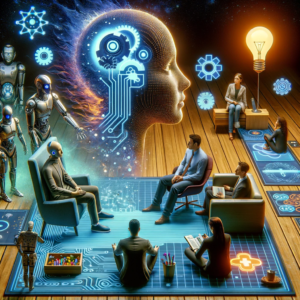Ah… children. The subject of having kids is emotionally loaded and triggers diverse reactions for many reasons. My own perspective is shaped by a myriad of factors: my upbringing, my partner’s views, being adopted, and considering the current societal context, financial situation, and where we live. My stance has evolved from not wanting kids, to uncertainty, and now to a conditional desire to have them, depending on factors like timing and affordability.
The decision to have children is often narrowly focused on biology, particularly a woman’s ability to bear children, while other crucial factors like personal psychology and sociology are sidelined. This approach tends to overshadow the male perspective in the process. I came across an article that aligns with my thoughts (The Ethical Issue of Choosing to Have Children). It discusses the often-ignored ethical considerations in deciding to have children and challenges the assumption that procreation doesn’t need critical thought. The article argues that the decision to have children, often influenced by biological drive and societal expectations, should be critically and ethically assessed like any other major life decision.
In a perfect world, the ideal would be to have children, but acknowledging the imperfections of our world leads some to decide against having them. This decision could have significant implications for the future. The study “Prevalence, age of decision, and interpersonal warmth judgments of childfree adults” shows that over one-fifth (21.64%) of adults in Michigan are childfree, distinct from those who are childless or planning to have children. It suggests a shift in societal norms and the importance of recognizing the choice to be childfree, which could lead to a decline in fertility rates.
In conclusion, while biology and emotional drives play a role, the decision to have children should also consider larger psychological, sociological, economic, political, and geographical contexts. These factors often influence the quality of life for the family and the child more than the biological aspect. This more grounded, holistic approach offers a balanced and fair perspective, acknowledging the emotional drive to have children while weighing it against a broader array of considerations.






